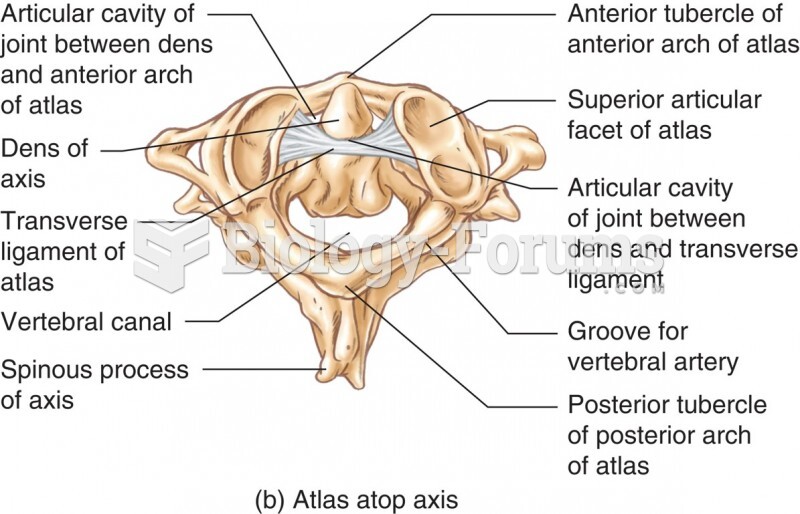|
|
|
Cytomegalovirus affects nearly the same amount of newborns every year as Down syndrome.
The tallest man ever known was Robert Wadlow, an American, who reached the height of 8 feet 11 inches. He died at age 26 years from an infection caused by the immense weight of his body (491 pounds) and the stress on his leg bones and muscles.
Though methadone is often used to treat dependency on other opioids, the drug itself can be abused. Crushing or snorting methadone can achieve the opiate "rush" desired by addicts. Improper use such as these can lead to a dangerous dependency on methadone. This drug now accounts for nearly one-third of opioid-related deaths.
Though Candida and Aspergillus species are the most common fungal pathogens causing invasive fungal disease in the immunocompromised, infections due to previously uncommon hyaline and dematiaceous filamentous fungi are occurring more often today. Rare fungal infections, once accurately diagnosed, may require surgical debridement, immunotherapy, and newer antifungals used singly or in combination with older antifungals, on a case-by-case basis.
More than 20 million Americans cite use of marijuana within the past 30 days, according to the National Survey on Drug Use and Health (NSDUH). More than 8 million admit to using it almost every day.
 A photograph of a woman with exophthalmos. This condition is associated with hypersecretion of the t
A photograph of a woman with exophthalmos. This condition is associated with hypersecretion of the t
 An engine in good mechanical condition should produce 17 to 21 inches Hg of vacuum at idle at sea ...
An engine in good mechanical condition should produce 17 to 21 inches Hg of vacuum at idle at sea ...





